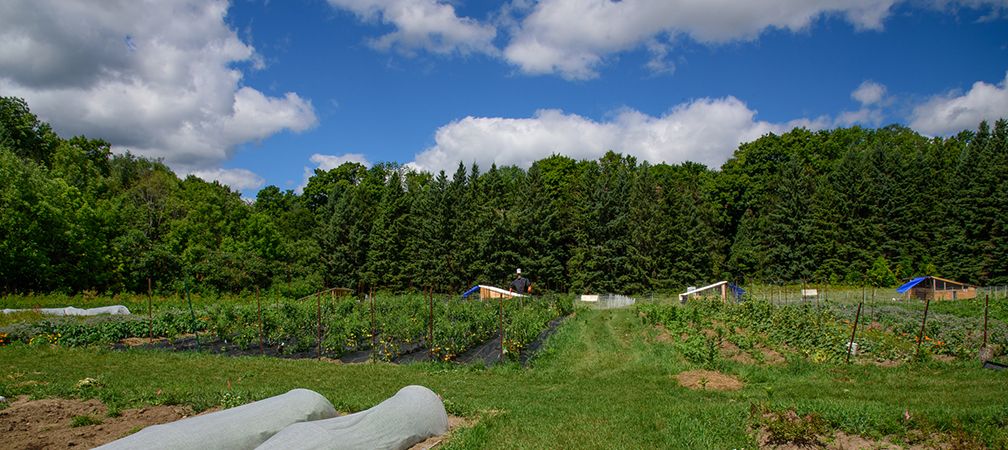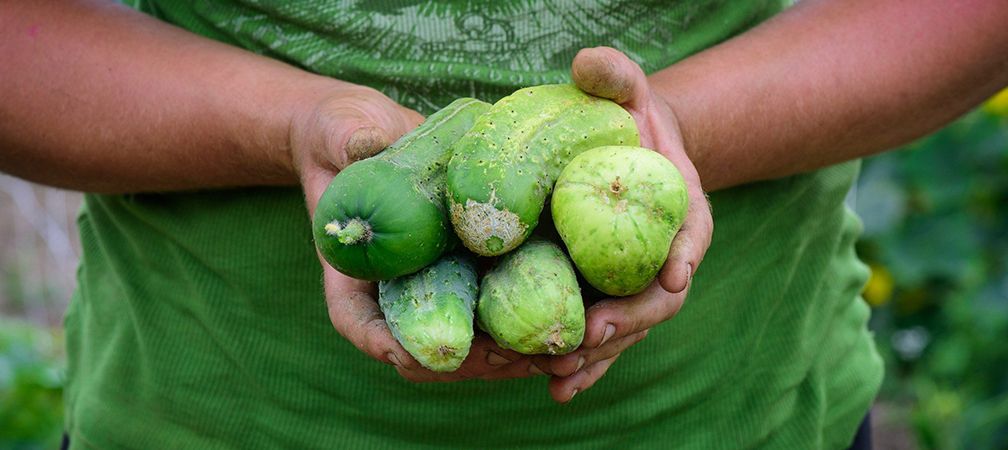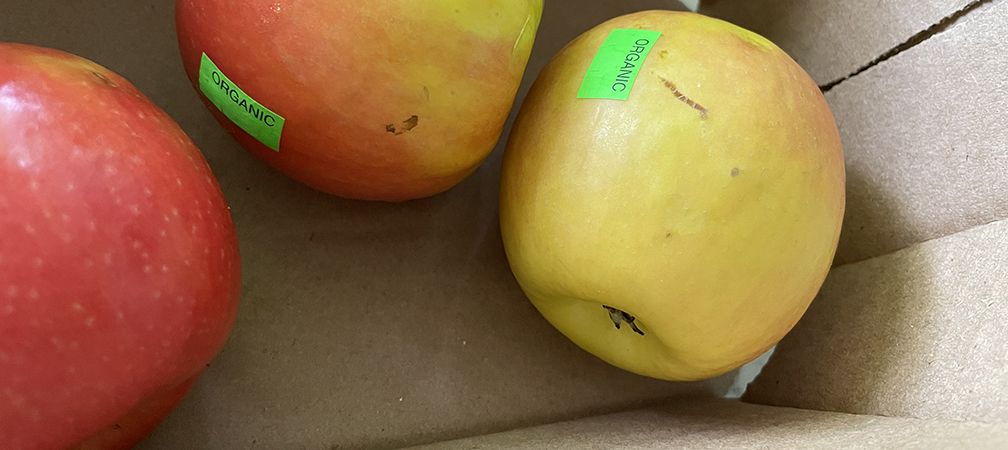Ontario Nature Blog
Receive email alerts about breaking conservation
and environmental news.
© Lora Denis
Niagara Region Farm © Tim Hagen
Our planet’s natural environment is under unprecedented stress. The good news is that you can help restore a healthy planet by reducing your environmental footprint, and we’re here to help you. This blog is part of a series that will help you go #GreenStepByStep. Subscribe to our blog to follow along!
Our food choices are one of the most important influences on our personal health as well as the environment’s. Many of our groceries are grown far away from consumers through unsustainable and unethical practices, leading to significant yet often unseen effects on the natural world, including wildlife.
Organic farming practices seek to lessen and even reverse the environmental degradation caused by conventional farming through regenerative and natural practices.
Foods that are certified as organic are grown to actively support environmental sustainability through practices that promote long-term regenerative farming. Any type of food can be produced organically, from fruits and vegetables to meats and fish. The organic label is awarded by a CFIA-accredited certification body; farmers must undergo strict annual analysis to be awarded the label. To obtain organic certification, a product must be produced without the use of:

To be certified with the organic label, farming practices must do more than avoid the substances listed above. Organic farming must also promote environmental sustainability through practices that help restore the environment. For example, by using natural fertilizers and pest controls to mitigate the chemical runoff that leaches into soils and waterways.
These farming practices extend beyond environmental benefits and directly impact human health through safer food choices. For example, studies found that organically grown foods are less likely to contain detectable levels of synthetic pesticides and are 48% less likely to contain cadmium, which is a known carcinogenic. Similarly, the heavy use of growth hormones used in beef production can have adverse health effects on consumers, such as hormonal imbalances and developmental issues in infants.

Non-organic farming typically employs the use of monocultured crops, heavy water usage, and chemical fertilizers. These practices directly lead to lower productivity in soils by draining soil nutrients and creating chemical runoff. Synthetic fertilizers and pesticides settle in soil and on plants and wash off during rainfall. These chemicals then runoff into waterbodies where their intended impacts take effect on local environments. This can lead to environmental degradation like eutrophication, soil and water acidification, and water pollution.
Local ecosystems can be severely impacted by chemical runoff, especially pesticides, which can spread far and wide into the Great Lakes and local streams. This far-reaching distribution of chemicals has significant impacts on wildlife. For instance, insect populations are steadily declining in part due to exposure to pesticide runoff. Other animal species are also susceptible to the effects of chemical exposure, such as songbirds, amphibians, and reptiles.

Climate change is one of the biggest threats to agriculture, and conversely, conventional agriculture is one of the biggest contributors to climate change. Poor farming practices increase climate change risks by reducing soil carbon sequestration and releasing chemicals into waterways that emit greenhouse gases. In turn, climate change leads to drier seasons and more intense weather events that impact agriculture.

Whenever possible, try to buy organic. When shopping for groceries, look for the organic label that ensures the food was inspected under the CFIA for organic practices.
Unfortunately, certified organic produce may not be readily available in all areas, or may be more expensive than what many can afford. If organic food is not available, look for foods with other labels that indicate sustainability, ethical-production, and/or health safety at every step of the production chain.
Our foods play a direct role in our health and our environment. By taking steps to improve our food choices, we can not only improve our health, but also play a significant role in pushing our agricultural practices towards a more sustainable, eco-conscious future.
Want to learn more ways to decrease your environmental footprint? Check out our webpage for more: ontarionature.org/environmental-footprint.

Gananoque Lake Nature Reserve © Smera Sukumar